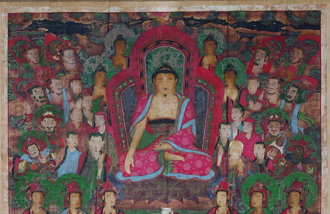Truth about comfort women should come before compensation
Truth about comfort women should come before compensation
Posted August. 27, 2013 06:42,
In 1993, Japanese Chief Cabinet Secretary Yohei Kono admitted that Japanese army had been involved in the recruitment of comfort women or enforced sex slaves, during the war and apologized. This announcement is called Kono Discourse. Not to mention whether being cured, the wounds from the sex slavery, however, have been aggravated by Japanese rightists who have continuously denied the forced nature of the comfort women system, inflicting further injury to Korean women who were put to the slavery, over the past 20 years.
The following is what the victims and civic groups request to the Japanese government:
First, verification of the truth (The Japanese governments acknowledgement of the responsibility); Second, official apology by the Japanese government; Third, compensation for the illegal act. To these requests, the Japanese government insists that the verification of the facts has been made by the Kono Discourse and compensation has been settled under the 1965 Korea-Japan Claim Agreement. The Japanese government even says that Korea stopped the humanitarian effort by Japan to resolve the issue through the Asia Women Fund in 1995.
Experts in the Korea-Japan relations, including former diplomats, scholars and journalists, share the following three opinions in common:
First, Japanese in general have significantly limited understanding of the truth surrounding the comfort women system. Even Korea experts in Japan see the matter on the extension of the practice of the Japanese public prostitution system or human trafficking of the time.
Second, the Japanese government will not officially deal with the compensation claim because it does not agree with the Korean governments stance on the matter, which is that the issue of the sex slavery victims cannot constitute the negotiation items for the 1965 claim agreement because the issue rose to the surface later when the victims made their testimonies. Tokyo says that acknowledgement of an exception to the 1965 agreement will open the door to following claims regarding other issues of the past. A Korean courts judgment on the compensation for forced draft by the Japanese government during the war is raised as a ground for the claim. In particular, Japanese diplomats express significant disappointment to the fact that Korea did not appreciate the Asia Women Fund composed of 600 million yen (6.1 million U.S. dollars) donation by the Japanese people and the 4.8 billion yen (49 million dollars) contribution by the Japanese government.
Third, if the Japanese government accepts the request for the compensation, it will no longer be able to deny its past wrong deeds. Seouls claim for the compensation has contributed to Tokyos hardened stance on the acceptance of the truth. In other words, Koreas claim has helped those who deny the enforced nature of the comfort woman system grow even further. Though now they keep quiet, Japanese rightists were active right after the second inauguration of the Abe government and recklessly said that the Kono Discourse needed to be amended.
Helping the Japanese government remain unchanged in its stance on the admission of the enforced nature of the system and its responsibility for the sex slavery system is the most urgent issue to save honor of all the victims, including both of those who have reported themselves as victims and those who have not, and make the truth a historic lesson. In 2007, the first Abe administration adopted a parliamentary statement that says no records had been found from past official documents supporting the enforced nature of the sex slavery system. However, the statement cannot be served as a ground for denying the Japanese governments forcefully putting the victims to the sexual slavery. As Nobuo Ishihara, Deputy Secretary in 1993 when the Kono Discourse was released, testified, the Japanese government must have not recorded its illegal act of forcing women to work as sex slaves during the war and would have destroyed any documents with records of the illegal act if they were found later.
High regards and respect should be credited to civil activists and researchers who have devoted themselves to verify the truth and the recovery of the victims` rights. And at the same time, now is the time to think about more effective and realistic alternatives based on the current situation.
Sincere apology by the Japanese government would be better cure for the victims wounds than forced compensation, contributing to reconciliation between Korea and Japan. In addition, Japan`s young people should come to know why Koreans have been angry over the issue so that the people of the two countries can share more similar view on their history.







